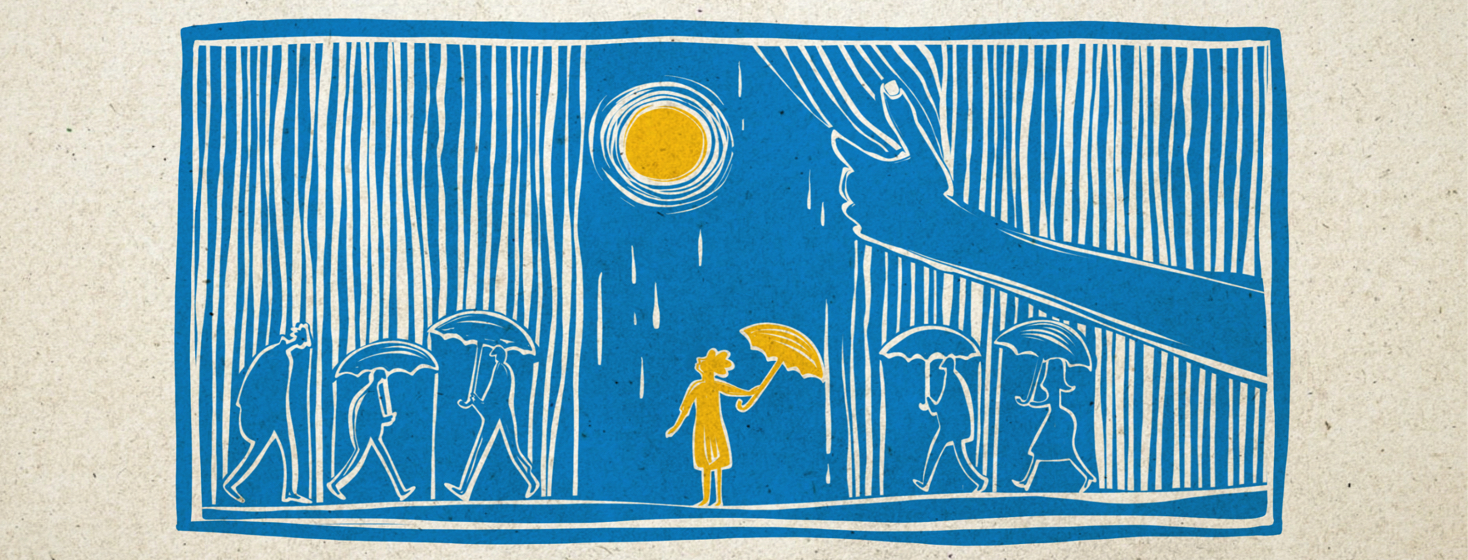Unveiling Eczema Tendencies
Eczema is an ever-evolving head scratcher (and body scratcher!) that continues to stump us in our daily life. Nothing feels simple, especially during a flare-up. We think about things like:
- What did I eat?
- What did I wear?
- What did I touch?
- Should I have skipped that activity?
- Is it the weather?
And so many more.
What are we looking to learn from others?
In these times, we tend to lean on others for eczema advice, not just medical professionals, because patients have lived experience. We feel we are able to learn from each other's trial and error, and certainly, the mental fortitude it takes to keep going when a treatment or regimen doesn't seem to be working.
However, I want to unveil a few tendencies that could be leaving us down on our eczema needs or exceptions simply because we were misguided.
How do we manage our expectations?
I have spoken on expectations before and the notion that what we try for our eczema is supposed to be the cure to our suffering. It may not always be the case. Optimism while navigating eczema or TSW is a great tool, but managing that optimism is also key. It's like that sugar high explosion where you feel wonderful that a management tool or treatment could be working, but then the sugar crash occurs when it doesn't end up the way you planned.
What's my advice?
Tip: Take things day by day. Embrace all possibilities and process each emotional turn a treatment may take. Our bodies are wild things (I mean, look how different we all are!), and it may certainly be a cha-cha in finding out what best suits our eczema needs.
How do we weed out the bad advice?
We tend to listen to others who may not know what is best. Oh, have I seen this one. I am guilty of it, to be fair. When we get tired of western medicine (which is a tool, not cure), we start to dig into the community for advice. We want to see the miracle occur. And that is not to say that there isn't a way to find great tools to help better our eczema knowledge and treatment, but I have seen some crazy claims by eczema "experts" in the groups. They are people who push certain ways of life, turning the gears in our brains to think, "...maybe they are right?" Things like:
- A certain dietary change
- A certain supplement
- A certain household product
- A certain balm, lotion, or bathing product
- A certain mindset or faith
It's lovely to see such passionate people who wish to showcase what has helped their eczema, but I also take some of that with a grain of salt. Do the research yourself into what they claim or say. Don't allow the desperation of a flare swallow you into following a path you have not looked into in order to decide if it's right for you.
What's my advice?
Tip: Listen to your gut. Not everything that gets posted as eczema advice by others is worthy of pursuing. It could be dangerous, in fact. Talk to actual experts in those realms. For example, if nutritional advice is being given, seek out a nutritionist. If products are being hailed as miracle workers, check the ingredients and ask a medical professional why that product could be delivering those results.
How is eczema a mind game?
We tend to push through the mental struggle alone. This one breaks my heart. Eczema is not just a skin condition. I wish there were ways to reclassify it, if I am honest. Because even though it is on our skin, it is just as heavy on the mind. The pain of flares can buckle our knees to the ground. We can retreat into darkness by missing out on different events, the anxiety of what others think, and the weariness of having to spend so much time and money on our skin.
And when we are in that dark place, our minds can play tricks on us. It can make us think we are unworthy and unlovable. It can sew doubt into our very core that we are less than or a burden to our loved ones. Please know that it's not true.
It's okay to feel those things, but also know that you are loved way past what is reflected in a mirror. So, if those feelings are overwhelming you, do not go it alone. There are therapists here to provide a loving hand during the lows (and highs!). Therapy should not be seen as a luxury but a necessity.
What's my advice?
Tip: If you have insurance, see what therapists are covered near you or through telehealth. I had one for five months at one of my lowest points. It's great being able to speak to a medical professional, someone who has tools for calming our inflamed bodies and minds. Our partners, parents, and loved ones don't always have those tools. *If you don't have insurance, see if there is a way to get into a support group that is either free or less costly than an out-of-pocket therapy session (if you do not have the financial resources).
What's my overall advice?
In the end, I am just a patient myself trying to assess and swim through all the information there is out in the world on eczema and topical steroid withdrawal. There is so much. So, so much. Not all of it is going to be helpful to me. It's just understanding where you are at and the ability to sift through what is best for you and what should be left to the side. Be gracious with yourself, take heed of what others say, and seek help when you need it.

Join the conversation